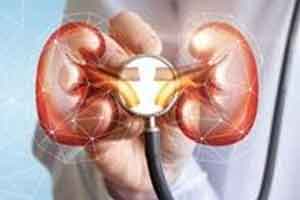- Home
- Editorial
- News
- Practice Guidelines
- Anesthesiology Guidelines
- Cancer Guidelines
- Cardiac Sciences Guidelines
- Critical Care Guidelines
- Dentistry Guidelines
- Dermatology Guidelines
- Diabetes and Endo Guidelines
- Diagnostics Guidelines
- ENT Guidelines
- Featured Practice Guidelines
- Gastroenterology Guidelines
- Geriatrics Guidelines
- Medicine Guidelines
- Nephrology Guidelines
- Neurosciences Guidelines
- Obs and Gynae Guidelines
- Ophthalmology Guidelines
- Orthopaedics Guidelines
- Paediatrics Guidelines
- Psychiatry Guidelines
- Pulmonology Guidelines
- Radiology Guidelines
- Surgery Guidelines
- Urology Guidelines
Intraoperative Oliguria associated with increased AKI after major surgery

Intraoperative oliguria is associated with the incidence of Acute kidney injury(AKI) after major noncardiac surgery, according to a study published in the journal Anesthesia and Analgesia.
Oliguria is defined as a urine output that is less than 1 mL/kg/h in infants, less than 0.5 mL/kg/h in children, and less than 400 mLor 500 mL per 24h in adults - this equals 17 or 21 mL/hour. Acute kidney injury (AKI) occurs in 6.1%–22.4% of patients undergoing major noncardiac surgery. There was no link established between intraoperative urine output and postoperative acute renal failure in previous studied, However, these studies used various definitions of acute renal failure.
Ayako and his associates conducted a study to investigate the association between intraoperative oliguria and postoperative acute kidney injury(AKI) defined by the serum creatinine criteria of the Risk, Injury, Failure, Loss, and End-stage kidney disease (RIFLE) classification.
The study which was a single-center, retrospective, and observational screened 26,984 patients undergoing elective or emergency surgery during the period. Exclusion criteria were age <18 years; duration of anesthesia <120 minutes; hospital stay <2 nights; local anesthesia only; urologic or cardiac surgery; coexisting end-stage kidney disease; and absence of serum creatinine measurement, intraoperative urine output data, or information regarding intraoperative drug use. The researchers analyzed a total of 5894 patients
Read Also: Trimethoprim use in UTI has greater risk of acute kidney injury in elderly : BMJ
The study found that the incidence of postoperative AKI was 7.3%. By multivariable analysis, ≥120 minutes of oliguria was independently associated with the development of postoperative AKI. After propensity-score matching of patients with ≥120 and <120 minutes of oliguria on baseline characteristics, the incidence of AKI in patients with ≥120 minutes of oliguria (n = 827; 10%) was significantly greater than that in those with <120 minutes of oliguria (n = 827; 4.8%)Contrary to previous studies, we found that intraoperative oliguria is associated with the incidence of AKI after major noncardiac surgery.
The study concluded that contrary to previous studies the authors found that intraoperative oliguria is associated with the incidence of AKI after major noncardiac surgery.

Disclaimer: This site is primarily intended for healthcare professionals. Any content/information on this website does not replace the advice of medical and/or health professionals and should not be construed as medical/diagnostic advice/endorsement or prescription. Use of this site is subject to our terms of use, privacy policy, advertisement policy. © 2020 Minerva Medical Treatment Pvt Ltd